Borrowed Cuttings
Penfolds
Bin 407 Cabernet Sauvignon 2016
Following the Cuttings... Less jammy fruit, but more regal. Pronounced peppermint in the background. Like the previous cab, blue-black fruits.on the nose and palate. Some spices definitely including clove. What's different is that the tannins are still bold (yes it's 2 years younger) but years equal, this will outlast. Both great wines but this gets the plus mark tonight.
93+ points — 6 years ago
Seavey Vineyard
Estate Grown Cabernet Sauvignon 2013
The nose reveals; dark currants, blackberries, heavy black plum, black raspberries, dark cherries and some blueberries. Black tea, expresso roast, anise, crushed dry rocks, big vanilla, clove, a little nutmeg, dry underbrush, sweet tarry notes, leather, woody notes with dark fresh & withering flower bouquet.
The body is big and lush. The tannins are big, meaty and tarry. Very dark currants. Blackberries, heavy black plum, black raspberries, dark cherries and some blueberries & strawberries as they open up. Black tea, expresso roast, steeped fruit tea, anise, crushed dry rocks, dry clay, big graphite, big vanilla, dark spice, clove, light dry herbs, a little nutmeg, dry underbrush, sweet tarry notes, leather, cedar with violets dark fresh & withering flower bouquet. The acidity is round, fresh and beautiful. The big, long, well balanced finish is excellent and look forward to having this in 15-20 years. This one will be a stunner!
Photos of, the barn where they make wine and hosts tastings, our private tasting area inside William’s old office. William desk and their outside terrace area.
Producer history & notes...Seavey Vineyard is located along Conn Valley Road in the eastern hills of Napa Valley, about 15 minutes from the valley floor.
This historical property was originally a cattle ranch. However, records indicate grapes were planted on some of the hillsides as early as the 1870’s. The stone dairy barn, still in existence, was built in 1881.
William & Mary Seavey purchased this property in 1979. The estate was originally founded by the Franco-Swiss Farming Company in 1881 which, closed down when Phylloxera destroyed their grape vines and the Volstead Act (Prohibition) went into effect. At the time of their purchase, they were a horse and cattle ranch. They quickly planted the slopes with grapes and initially sold their fruit to Raymond Vineyards. They have never purchased grapes, all their wine is made from estate grapes. Their vineyards are separated into 20 plus individual blocks.
Today, the property is about 200 total acres of which, 40 acres are planted to vine. Their hillside vineyards produce low yields of rich concentrated fruit. A small block of Chardonnay grows in a cooler lower part of their property. Besides grapes, they also raise cattle which are used to graze the hillsides. They feed the vineyard with the cattle cuttings. In 2003, they were one of the first Napa wineries to install solar.
Mary passed away in 2008 and William died in 2016. There daughter Dorie returned to the family business and now oversees the winery operations. Her brother Arthur also handles national and some small international sales, primarily to restaurants. However, most of their wine is sold direct to consumers.
Seavey’s first commercial vintage was released in 1990 a year after they renovated the stone dairy barn into a working winery. Today this stone building is the centerpiece of the property and is where tastings are hosted.
Since 2011, Jim Duane has been their day to day Winemaker. He’s worked at Robert Mondavi and Stag’s Leap Wine Cellars. It should also be noted that Philippe Melka Winemaker/Consultant has been with Seavey since 1995...one of Philippe’s two initial wine making jobs in the Napa Valley were with Seavey and Lail Vineyards.
Seavy makes about 3,200 cases annually depending on what mother nature brings. They make around two hundred cases of Chardonnay, slightly more Merlot and the rest is of the production is comprised of their Caravina and Estate Cabernets.
— 7 years ago
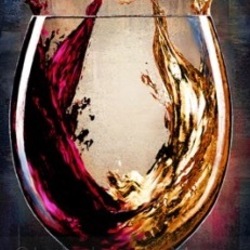

Clarendon Hills
Brookman Syrah 2005
On the nose; ripe, syrupy dark currants, blackberries, sweet slightly liqueured dark cherries, black plum, black raspberries, blue fruits, dark fruit gummy bears, tarry notes, black pepper, soft leather, dry brush, black licorice, caramel, dry crushed rocks, loamy dry top soil, violets, lilacs and lavender. The body is warm, thick, ultra rich, lush & elegant. The tannins are round & velvety but still have strength...50% resolved. It has another 10-12 years of good drinking ahead. The fruits are gorgeous & ripe; blackberries, sweet slightly liqueured dark cherries, black plum, black raspberries & lots of blue fruits & strawberries that paint the palate on the long set. A fair amount of tarry notes, black pepper, dry herbaceous notes (bay leaf), dry black olive, medium dark spice, dark chocolate, caramel, vanilla, clove, soft leather, dry brush, black licorice, dry crushed rocks, loamy dry top soil, violets, lilacs and lavender. The acidity is round & excellent. The long fruit driven finish is beautifully lush, elegant, well structured with near perfect balance. Photos of; Owner/Winemaker Roman Bratasiuk, their old gnarly 80-90 year old and low yielding vines and two of their vineyards. Producer history and notes...Clarendon Hills was founded in 1990 by Biochemist Roman Bratasiuks. Roman sought to further his passion for great wine by making some himself. Roman never trained as a winemaker. He planned on using his insight as a wine taster and scientist alike to dictate decisions. Roman sought to make a version of the wines he loved. The beginnings of Clarendon Hills effectively started in 1989 when he knocked on the door a local grower whose fruit he liked. A great friendship grew from from this by chance knock on the door. A handshake ensued and it became the first Clarendon Hills vineyard. On Saturday 24 February in 1990, Roman with just a bucket and secateurs arrived. Much to the growers shock, he began picking fruit himself. Roman started at 6 am and finished at 9 pm that evening; he picked half the entire vineyard himself and returned on Sunday the 25th to finish it. This process was repeated in a Merlot and Cabernet Sauvignon vineyard which formed the 3 single site wines produced in 1990. Crushing was performed by Roman using empty bottles to squash the fruit in a bucket, then transferred by that bucket, to one of the 3 small ex-dairy tanks all bought for $100 and a quick, non-temperature controlled wild-yeast fermentation ensued. The wines were pressed in a borrowed basket press and matured in 3 separate third-hand barrels. The vintage was finished in 11 days. Much to Roman’s delight the wines were superb and they sold. With the money he bought more buckets, three more barrels and rent for a shed to house wines. The process was repeated the next year and the year after that. Clarendon Hills grew from his determination. This one man had to make wine after work and on the weekends after his 9-to-5 job. A local news paper even ran a story "Tin shed wines take on the world"; which made Roman cringe but slowly Clarendon Hills grew, it afforded him more equipment to make the process less labour-intensive and slowly grow his vineyard repertoire. In 1994, Roman left the Australian Government laboratories and devoted himself to Clarendon Hills 100%. In the 1994 vintage, Roman hired his first employee and rebranded his $30 Clarendon Hills Shiraz as 1994 Clarendon Hills Astralis. It was the first bottle in Australia to be priced at $100. It sold out. Roman went on for many years, making and selling the wines himself. Travelling the world over to show people the wines he made. Roman figured since he made the wine, he was the most logical choice to sell and represent his wine. This worked out so well, he continues to show the wines himself. Clarendon Hills produces; 8 Syrah, 6 Grenache, 3 Cabernet Sauvignon, a Merlot and Mourvedre wine. They are all single vineyards single varietal wines, produced from low yielding, dry grown old vines which are hand pruned and hand picked. All his wines are aged in high-quality French oak barriques. Quite a brilliant success story. This is also another wine I acquired on the secondary market for much less it’s release price and far less than their current release prices. It starts as a 9.3 with a half-hour decant. However, as it gets to an hour and half decant plus, it just gets better & better. Works it’s way to a 9.5 in a hour decant. — 8 years ago
Cakebread Cellars
Cuttings Wharf Vineyard Chardonnay 2015
World class Chardonnay. A manly Chardonnay. Very very good. — 8 years ago
Penfolds
Bin 600 California Cabernet Shiraz 2018
Rich crimson with purple tinges. It certainly has the Penfolds winemaking thumbprint of ripe fruit and toasty oak. As HH said it tastes more Australian than Californian even though all the fruit is Californian and it was vinified there. These are the details (78% Cabernet 22% Shiraz. Napa 45%, Sonoma 35%, Paso Robles 20%). In hindsight it probably tastes Australian because of the Cabernet Shiraz blend which is common in Australia and rare (or nonexistent in California?). This venture for Penfolds has been 30 years in the making with Shiraz cuttings being brought from South Australia to Geyser Peak in Sonoma back then as our host for the dinner explained on the night. 4 Cuvées, all Red have been made ranging in price of $95 for this wine to $950 for Quantum. 70% of the production has been allocated to the North American market so dinners such as the one we had are quite rare in Australia because of lack of stock. This Bin 600 even though the least expensive of the 4 Cuvées will live well into the late 2030s even though it is so well balanced you could happily drink it now. — 4 years ago
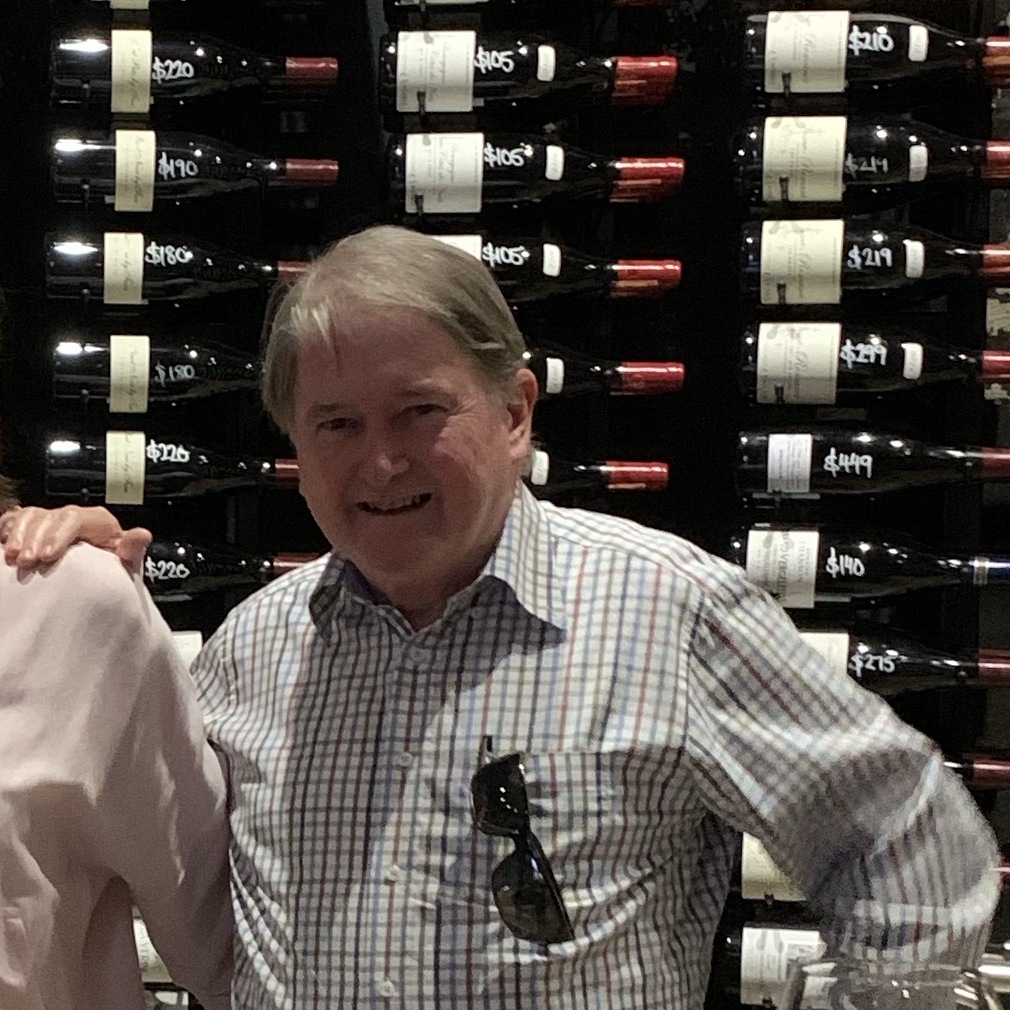
Evesham Wood
Cuvée J Eola-Amity Hills Pinot Noir 2008
A beautiful nose of soft red fruits, some spice, soulful plummy stuff. Very burgundinian but the plushness of US Pinot. On the palate this has great poise. Light but intense this has lovely fresh fruit and some gnarly wild herbs with underlying acidity and good length. Apparently the ‘j’ refers to Jayer cuttings being the source of the Pinot. If so, that would go some way toward explaining why this is so aromatic and balanced. Excellent — 6 years ago
Borrowed Cuttings
Cowra Picpoul Blanc 2017
This delightful Picpoul paired so well with local NSW and Tasmanian oysters. It had a bit more body than some French Picpoul Pinet which worked with creamier oysters. — 7 years ago
Robert Mondavi Winery
Oakville Fumé Blanc 2014
My original intention today was to find something old world, but also progressive... thinking pet-nat or maybe Cru Beaujolais... but instead I came across this at one third its list price. Sourced 100% from To Kalon Vineyard, so Mondavi it is. Considering what To Kalon reds command, it’s fascinating that the vineyard still has blocks planted to white varietals. The 2014 Oakville District Fumé Blanc is a blend of 79% Sauvignon Blanc and 21% Sémillon. Lots of history here... The name Fumé Blanc was actually a creation of Robert Mondavi in the late 60s. Needing a pseudonym to distinguish his dry, Loire-inspired style of Sauvignon Blanc from the mostly sweet, mostly bad versions that dominated the market at the time, he borrowed from Loire’s Pouilly-Fumé, famous for its dry Sauvignon Blancs. Mondavi never trademarked the name, actually encouraging other producers to adopt the nomenclature as an association with higher quality. Several of these producers continue to bottle the varietal under Fumé Blanc, including Dry Creek Vineyards, Grgich, Ferrari-Carano, and Benziger.
An immediately appealing nose features the signature lemon verbena of Mondavi’s Fumé Blancs. Carries surprising restraint in regard to the fruit and level of manipulation, and is an indication of the superb balance it maintains. Lime zest, stone fruit, slate, and fresh thyme. I wouldn’t pay $40 for it, but this is better than everything under $20. — 7 years ago
Round Pond Estate
Rutherford Cabernet Sauvignon 2013
I'll see if I can put notes down this time...
I agree with @Shay Aldriedge ...deep purple thick legs. I get a floral nosey note that persists throughout. There is something else that I interpret as caraway seeds or rye bread. It's big. Acidic. I'd score this a tie with Cuttings. It's really good. Tannins are about perfect. I'm fortunate, our local store had a special order and is selling this @ 41.99!
93 points — 8 years ago
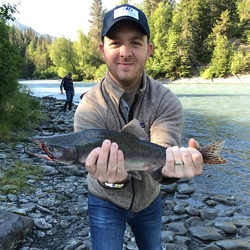

Woodside Vineyards
La Questa Cabernet Sauvignon 2009
2009 vintage. From Chateau Margaux cuttings planted in 1884. Light/medium body with a long spicy finish. Pretty solid stuff. — 8 years ago
Martinelli
"Grace Nicole" Zio Tony Ranch Pinot Noir 2012
Pleasant surprise here, bigger pinot with a dark cherry-laden nose, touch of forest floor. Some blueberry liqueur that seemed borrowed from the Syrah, other black fruit and soft, wide mouthfeel. Burgun-NOT. Tannins and a fresh acidity holding it together nicely. Impressed me! — 8 years ago
Pisoni Vineyards
Estate Santa Lucia Highlands Pinot Noir 2014
1 hr. decant & was ready to rock with my Duck 🦆 Dinner 🥘!!! Happy that Gary Pisoni put La Tache cuttings in his dirty underwear in 1983 prior TSA Bullshit & grafted onto vines in his Santa Lucia Highlands vineyard. This “Poor Man’s” La Tache is always Smokin’ great! AG says 95 Points & his review is point on in relationship to the wine. Cheers 🍇🍷👍🏻👏🏻👏🏻👏🏻 — 5 years ago
Tom Scott Vineyard
Barn Burner Cabernet Sauvignon 2015
Beautiful Napa Cabernet Bordeaux blend. Would be better in 5-10 years. Really hankering for an aged rib-eye grilled over vine cuttings and spent oak barrels, caressed with rosemary branches dipped in rendered marrow and butter. — 6 years ago
Corsiero
Nero di Troia 2016
There is a legend behind this grape that after successfully defeating the City of Troy with his Trojan horse, Diomedes is said to have travelled to northern Puglia, where he founded the City of Troia, planting the vine cuttings he brought with him. It’s a delicious wine bursting with dark cherry flavor with a nice long finish. Another nice grape from Italy that I am enjoying! — 7 years ago
Alban Vineyards
Central Coast Viognier 2016
Legend has it... Mr alban came into the biz after he clarified to another winemaker at said winery in a crowd that he wasn't making Roussanne (I believe the story goes) but viognier... to which im too drunk to remember the rest. But the point being that briefcase cuttings did come over. Alban did start a Viognier generation on the central coast.. and while I look for more promising examples, I say yes to this. Age definitely would help. Character of vanilla, honey, honeysuckle nose, pear, and a nice mineral and acid tension in youth. — 7 years ago
Claude Dugat
Charmes-Chambertin Grand Cru Pinot Noir 1996
Misty, in yo' face raspberry jam, leather and barnyard campfire of lavender/rose cuttings. Many, many years left on this one. — 7 years ago
Jonata Winery
El Desafio de Jonata Santa Ynez Valley Red Blend 2006
Pronounced Ho-notta (but Ho-latta is also acceptable). The name pays homage to the 1845 Spanish land grant, Rancho San Carlos de Jonata. At the time the land grant covered a large part of the Santa Ynez Valley. Today’s Jonata is at the heart of the former land grant. The Jonata name was borrowed by the first pioneers from the local Chumash Indian and means “tall oak”. Prior to planting the vineyards, Jonata had the viticultural team from Château Latour do a survey of the 600 acre property to determine which sites would support which types of grapes. Latour returned with a preliminary verdict: plant asparagus. El Desafio! This wine represents Jonata’s defiance and uprising to that challenge. 3 hours open and it’s absolutely stunning... cassis for days... so much mint... and savoriness... and chocolate... so classic Cali Cabernet, but still terroir-driven. — 8 years ago
Domaine Henri Gouges
La Perrière Nuits St. Georges 1er Cru Pinot Blanc 2006
crazy story on this "white" Burgundy that geeks love. Many years ago while walking through his vineyards, Henri Gouges noted some vines with white grapes, took some cuttings and grafted them, ultimately making a white wine from grapes now called Pinot Gouges--Pinot Noir has only one gene for color and these vines lost it, making them white. So it is a white or albino Pinot Noir, tastes red but looks white. Couple other producers make it, too. Good, not great wine, though. Fun to blind taste Burg lovers on. — 8 years ago
Domaine Mugneret-Gibourg
Vosne-Romanée Pinot Noir 1997
Decanted 2 hours, served at 50 degrees. Deeply forested: damp, moist, like walking in Oregon. There's a lumber component too - the wood comes through. Fresh garden cuttings. Mushrooms of course. Wet tobacco. Background has fresh cut underripe plumb. There's still a sweetness here. Fully developed nose with that's so nice to sit on. Acid dominates the palette with some fruit hiding. Perhaps this is where it's showing that this wine is past its prime. But it's still nice. Finish has really fine tannic structure of medium length and displays some remnants of spice. — 8 years ago







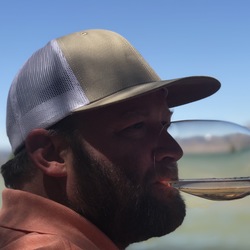
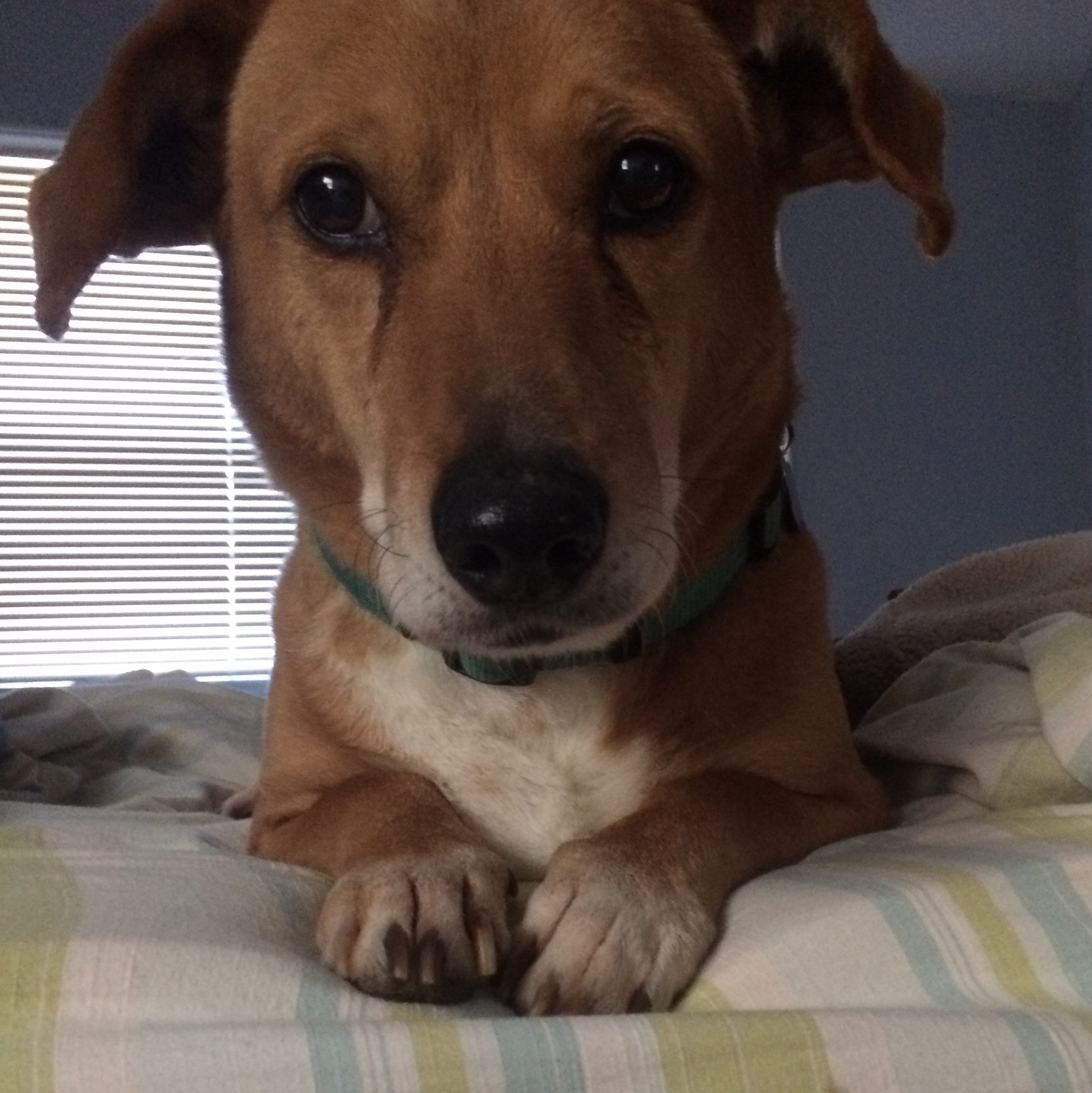


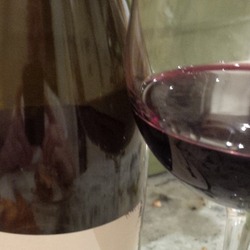



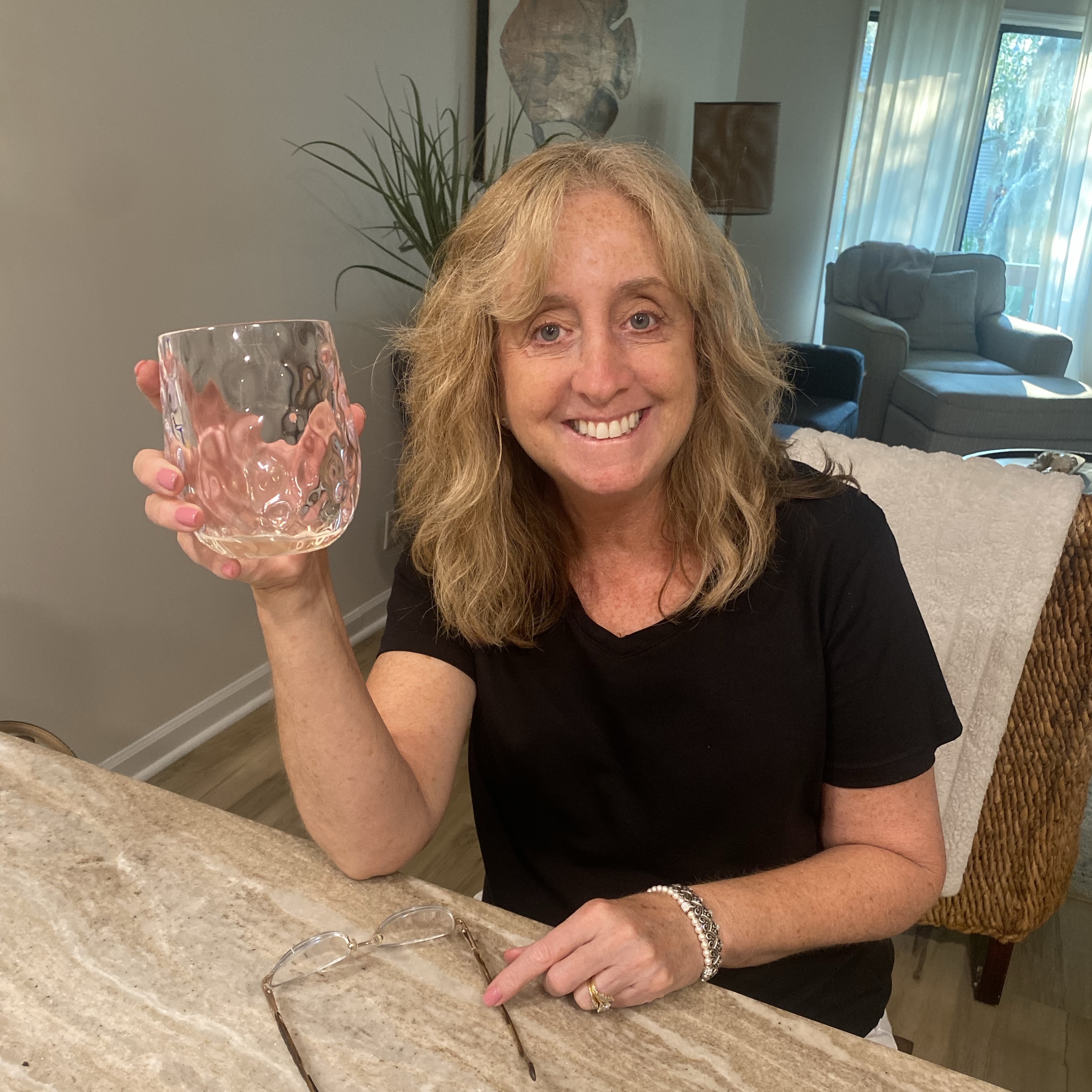







Phasmaster
Megan borrowed from Anna. Really enjoyed — 4 years ago